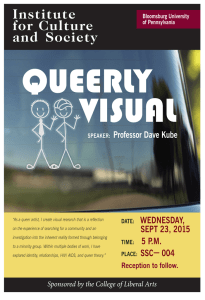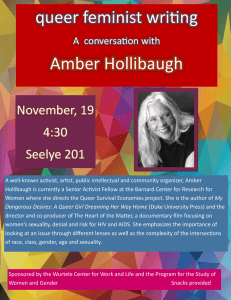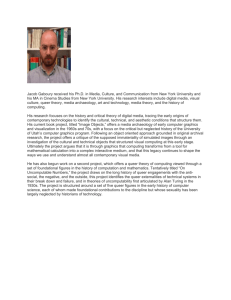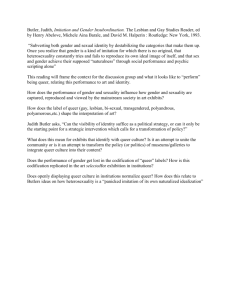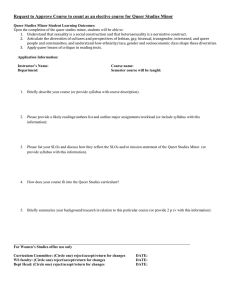Individual Diversity Associate Application ENG 494
advertisement
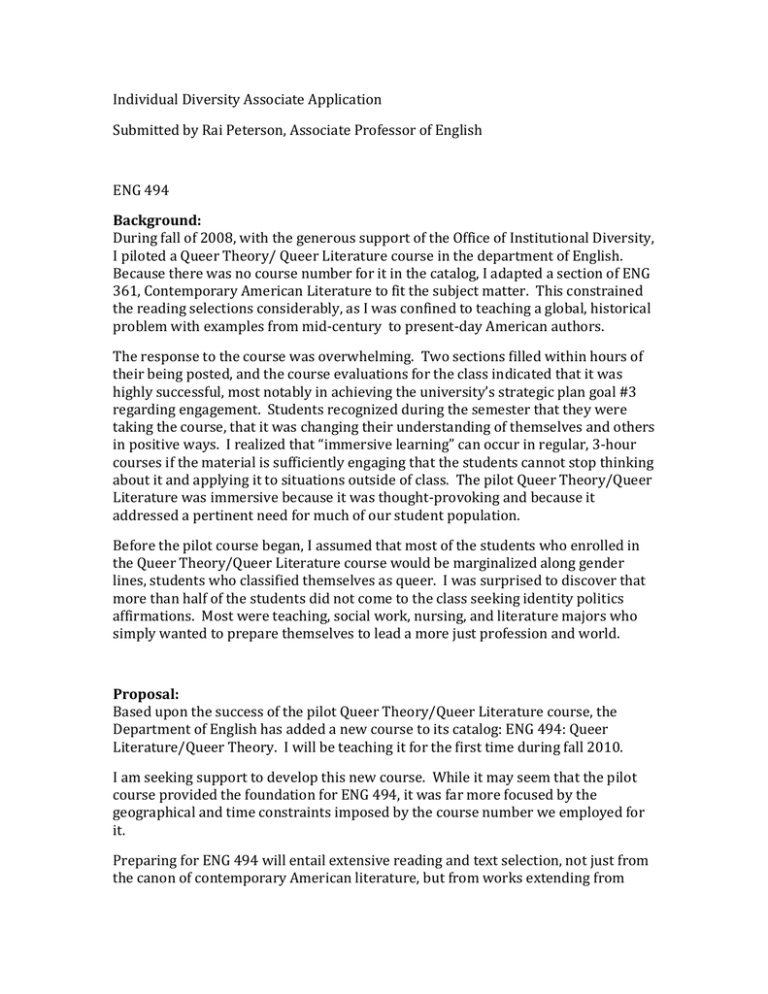
Individual Diversity Associate Application Submitted by Rai Peterson, Associate Professor of English ENG 494 Background: During fall of 2008, with the generous support of the Office of Institutional Diversity, I piloted a Queer Theory/ Queer Literature course in the department of English. Because there was no course number for it in the catalog, I adapted a section of ENG 361, Contemporary American Literature to fit the subject matter. This constrained the reading selections considerably, as I was confined to teaching a global, historical problem with examples from mid-century to present-day American authors. The response to the course was overwhelming. Two sections filled within hours of their being posted, and the course evaluations for the class indicated that it was highly successful, most notably in achieving the university’s strategic plan goal #3 regarding engagement. Students recognized during the semester that they were taking the course, that it was changing their understanding of themselves and others in positive ways. I realized that “immersive learning” can occur in regular, 3-hour courses if the material is sufficiently engaging that the students cannot stop thinking about it and applying it to situations outside of class. The pilot Queer Theory/Queer Literature was immersive because it was thought-provoking and because it addressed a pertinent need for much of our student population. Before the pilot course began, I assumed that most of the students who enrolled in the Queer Theory/Queer Literature course would be marginalized along gender lines, students who classified themselves as queer. I was surprised to discover that more than half of the students did not come to the class seeking identity politics affirmations. Most were teaching, social work, nursing, and literature majors who simply wanted to prepare themselves to lead a more just profession and world. Proposal: Based upon the success of the pilot Queer Theory/Queer Literature course, the Department of English has added a new course to its catalog: ENG 494: Queer Literature/Queer Theory. I will be teaching it for the first time during fall 2010. I am seeking support to develop this new course. While it may seem that the pilot course provided the foundation for ENG 494, it was far more focused by the geographical and time constraints imposed by the course number we employed for it. Preparing for ENG 494 will entail extensive reading and text selection, not just from the canon of contemporary American literature, but from works extending from Ancient Greek literature into present day world literature. A solid course in Queer Literature/Queer theory will investigate myths about the ancient Greeks’ condoning homosexuality between men and boys as well as Iranian President Mahmoud Ahmadinejad’s assertion that there are no gays in Iran. As an American literature specialist myself, this means I will be exploring the literature of many cultures and time periods with which I am not currently familiar—always with an eye to what texts remain in print and affordable for our students. Queer Theory itself is a protean discipline; it encompasses all of gay and lesbian studies, and expands their focus to encompass any kind of sexual activity or identity that falls into divergent categories. Choosing materials wisely for a course with such broad scope will require diligent “homework.” It is essential that this first offering of the new course set a representative, engaging standard as I am certain it will be taught by other faculty in coming years. Future: I continue to be committed to starting a distributive LGBTQ minor for BSU students. To that end, I have applied to be a member of the Affiliated Faculty with the emerging Women’s and Gender Studies Program. I am confident that with continued support from the OID, the LGBTQ community at BSU will be able to cooperate with the re-defined Women’s and Gender Studies program to achieve this. I hope that BSU will emerge as an objective leader in the “culture wars” surrounding homosexual marriage, immigration rights, and adoption laws.
